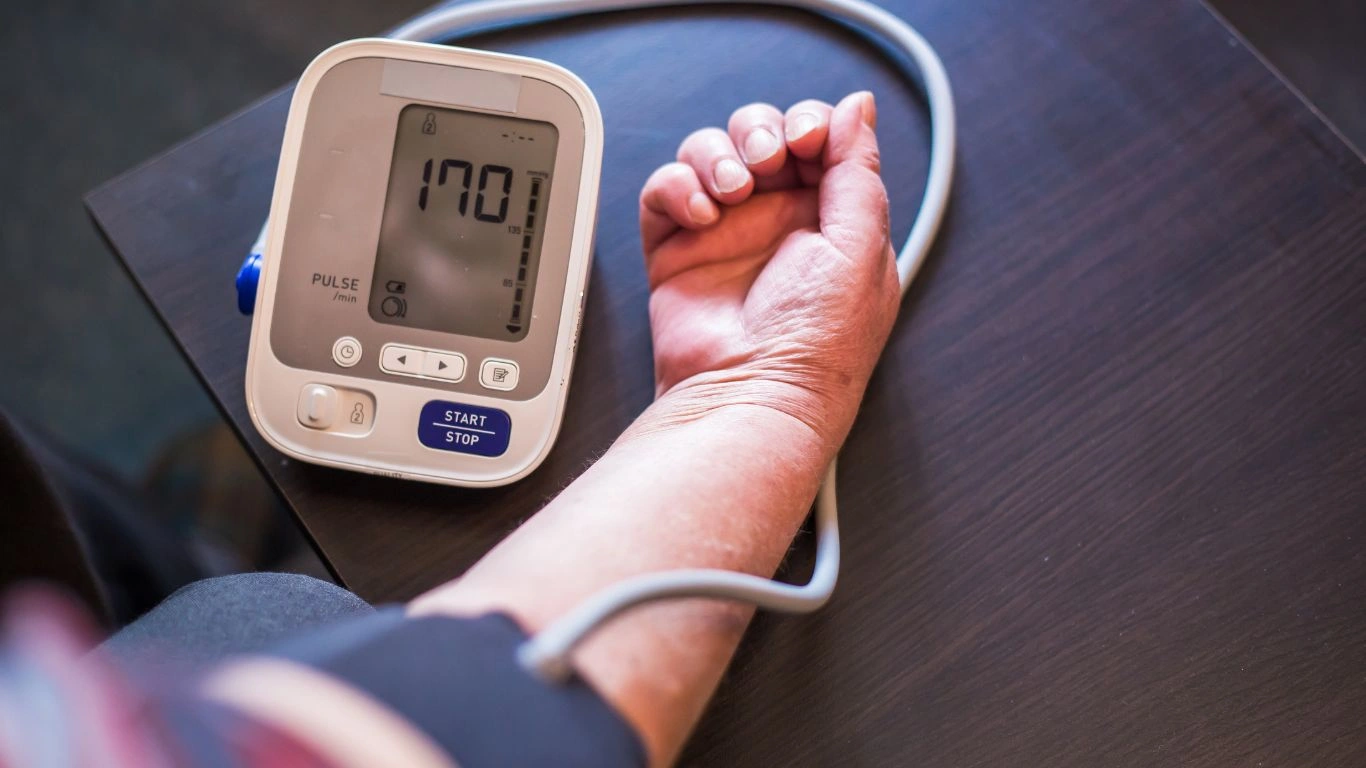Hypertension Risk Factors in Women: What You Need to Know
Hypertension (high blood pressure) is a condition that can sneak up on you, especially when it comes to women. Often called the “silent killer,” high blood pressure doesn’t always show noticeable symptoms, but it can lead to serious health issues like heart disease, stroke, and kidney problems if not managed. Understanding the risk factors that contribute to hypertension is crucial for women, as they may face unique challenges when it comes to managing blood pressure.
In this guide, we’ll walk you through the main hypertension risk factors in women, some of which are unique to women’s biology and lifestyle. We’ll also touch on how to take control and reduce the risk through simple lifestyle changes.
Why Hypertension is a Bigger Deal for Women

Women often experience different risk factors for hypertension compared to men. For example, hormonal changes, pregnancy-related conditions, and certain medical conditions that are more prevalent in women can all impact blood pressure. It’s not just about genetics; your life stage, lifestyle choices, and even pregnancy can play a major role in raising your risk of hypertension.
Now, let’s dive into the most common risk factors for women.
Common Hypertension Risk Factors for Women
1. Age and Menopause
As women age, the risk of developing high blood pressure increases. Once women hit menopause, the drop in estrogen levels can contribute to higher blood pressure. Estrogen helps to relax blood vessels and regulate blood pressure, so the loss of estrogen after menopause can lead to an increase in systolic (top number) blood pressure.
2. Pregnancy-Related Hypertension
During pregnancy, some women develop high blood pressure, a condition known as gestational hypertension. In some cases, this can evolve into preeclampsia, which is a more serious condition that can affect both mother and baby. Women who’ve had gestational hypertension are at a higher risk of developing high blood pressure later in life.
3. Obesity
Obesity is a well-known risk factor for hypertension in both men and women, but for women, excess weight tends to have a stronger correlation with higher blood pressure. This could be due to the fact that women often accumulate more abdominal fat, which is linked to an increased risk of developing high blood pressure. Losing even a small amount of weight, especially around the waist, can significantly lower blood pressure.
4. Physical Inactivity
A sedentary lifestyle can lead to weight gain and higher blood pressure. Women who don’t get enough physical activity—whether due to busy schedules, lack of motivation, or other reasons—are at greater risk. Regular exercise, like brisk walking, swimming, or cycling, can help keep blood pressure in check by improving heart function and blood vessel flexibility.
5. Stress
Chronic stress can be a huge factor in raising blood pressure, and for women juggling multiple roles—work, family, social obligations—stress can be a constant companion. The hormones released during stressful situations can cause blood vessels to constrict, which in turn increases blood pressure. Learning stress management techniques like deep breathing, yoga, or mindfulness can help reduce stress levels and prevent hypertension.
6. Dietary Habits
Women’s eating habits can greatly influence blood pressure. Diets high in sodium, sugar, and unhealthy fats are big contributors to hypertension. If you’re eating a lot of processed foods, salty snacks, or fast food, your risk of high blood pressure increases. Conversely, diets rich in fruits, vegetables, lean proteins, and whole grains are known to help maintain healthy blood pressure.
Unique Hypertension Risks for Women

7. Birth Control Pills
Certain types of hormonal birth control can increase blood pressure in some women, especially those who smoke, are overweight, or have a family history of hypertension. If you’re taking birth control and concerned about your blood pressure, it’s a good idea to talk to your doctor about monitoring your blood pressure or possibly switching to a non-hormonal birth control method.
8. Chronic Conditions
Conditions like diabetes, thyroid disorders, and autoimmune diseases (like lupus or rheumatoid arthritis) are more common in women and can increase the risk of developing hypertension. These conditions can damage blood vessels or affect the kidneys, both of which play a role in blood pressure regulation.
How to Lower Your Hypertension Risk

You may not be able to change everything about your health or family history, but there are plenty of ways to lower your risk and manage your blood pressure. Here are some tips for reducing your hypertension risk:
- Maintain a healthy weight: Even losing a few pounds can help lower your blood pressure.
- Exercise regularly: Aim for at least 30 minutes of moderate exercise most days of the week.
- Eat a heart-healthy diet: Focus on foods that are low in sodium and rich in nutrients—like fruits, vegetables, and lean meats.
- Limit alcohol and quit smoking: Both of these habits can raise your blood pressure.
- Manage stress: Try relaxation techniques like deep breathing or meditation to cope with stress.
- Monitor your blood pressure: Regular check-ups will help catch any early signs of hypertension so you can take action before it becomes a serious problem.
Conclusion
Hypertension is a significant concern for women, and understanding the risk factors is the first step toward managing your health. From age-related changes to lifestyle habits, there are several factors that can contribute to high blood pressure. By staying active, eating healthy, managing stress, and getting regular check-ups, you can reduce your risk and protect your heart health.
Appendices
FAQs
- What are the most common hypertension risk factors for women? The most common risk factors include age, menopause, obesity, physical inactivity, high-stress levels, and poor dietary habits.
- Can pregnancy affect blood pressure? Yes, pregnancy-related conditions like gestational hypertension and preeclampsia can increase the risk of high blood pressure during and after pregnancy.
- How does menopause impact hypertension? The drop in estrogen levels during menopause can lead to increased blood pressure, making it a critical time for women to monitor their blood pressure regularly.
- Can stress cause high blood pressure? Yes, chronic stress can raise blood pressure by causing the body to release stress hormones that narrow blood vessels.
- What role does diet play in managing hypertension? A healthy diet low in sodium and rich in fruits, vegetables, and whole grains can help manage and prevent high blood pressure.
References
- American Heart Association. (2023). Hypertension and Women. AHA Journal.
- National Institutes of Health. (2024). Blood Pressure and Women’s Health. NIH Report.
- Smith, J., & Roberts, L. (2022). Hypertension in Women: Risk Factors and Prevention. Women’s Health Journal.
Disclaimer
The information in this article is for educational purposes only and should not replace professional medical advice. Always consult your healthcare provider for advice tailored to your specific health needs.






